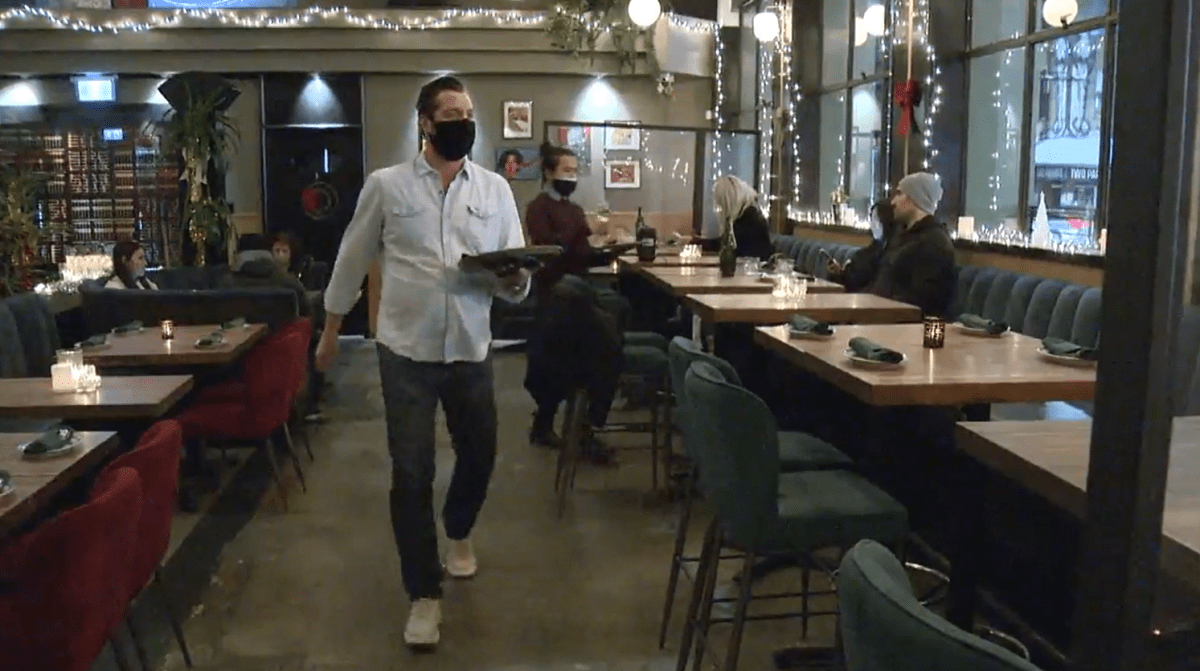With the clock ticking down on another difficult year, B.C.’s hospitality industry is looking to 2022 with trepidation.

Two years of COVID-19 and the attendant on-and-off restrictions have already put about 15 per cent of operators out of business, says B.C.’s Alliance of Beverage Licensees.
“We would not be remotely surprised to see another 5 to 10 per cent of the industry gone in the next few months,” Executive Director Jeff Guignard told Global News.
“People are really scared of what’s going to happen in the next couple of months.”
Granville Street’s Cold Tea restaurant opened in the summer of 2020, but as a new business has not been eligible for pandemic supports.
It has managed to hold on through restrictions, a labour shortage and supply chain problems caused by the recent flooding, an experience that owner Ron Cheng describes as a “rollercoaster.”
“Everything’s kind of been thrown at us. We’re still here.”
On Friday, staff at Cold Tea were setting up for a scaled-down New Year’s Eve — traditionally an important moneymaker for the industry. But now the establishment is coping with the province’s latest COVID-19 restrictions, banning organized New Year’s Eve events.

It’s a change from last year when the business was hit with a $2,300 fine for hosting a large group and serving drinks after 8 p.m. It was a violation of a last-minute COVID-19 order halting New Year’s Eve liquor sales early.

Get weekly health news
“This time around we’re just going to have regular dinner service,” Cheng said.
“I think we’re lucky this year where there’s no 10 p.m. curfew. And we were given enough notice this time around to make the necessary adjustments.”
According to Restaurants Canada, restaurants and foodservice businesses are the third-largest private-sector employers in British Columbia, representing around 193,000 jobs, pre-COVID.
The organization said B.C. restaurateurs rebounded in 2021 with sales growing 12 per cent, but revenues were nearly 17 per cent below 2019 and aren’t expected to hit pre-pandemic levels until 2023.
At Davie Street’s Junction Pub, the return of plexiglass dividers and six-person group-size limits in December presaged a slump in sales of 35-45 per cent, according to owner Vince Marino.
“We’ve managed to survive because we’ve had some very, very loyal customers and they’ve continued to come in, and they’ve adapted very well with the restrictions. And for us, that is where we are. Survival mode is kind of paying our rent, paying our utilities, paying our staff.”
With COVID-19 cases continuing to surge, it seems unlikely business will be booming again any time soon.
But for operators like Cheng, who have sunk all of their savings into their business, the only way out of the pandemic is to put one foot in front of the other and hope for the best.
“It’s been tough but we’re going to get through it,” he said.










Comments